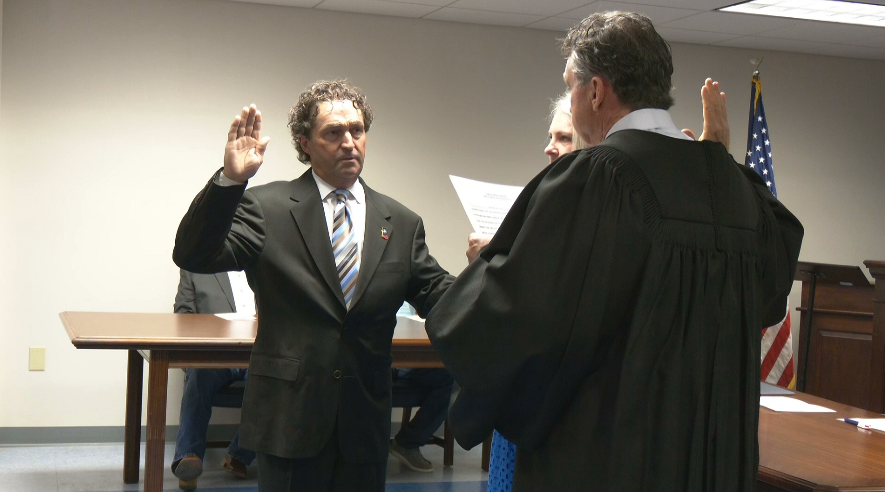We need to ditch coal before it's too late, Bill McKibben warns
The decline of coal can’t come soon enough, and neither can the world’s shift to renewable energy, environmentalist Bill McKibben tells CBSN.
“The world demand in coal has begun to sink. It’s been replaced with natural gas which, sadly, isn’t much cleaner,” McKibben said in an interview. “What we really need to do is make the leap straight to renewable energy.”
It’s a problem he’s seen coming for a long time. “I wrote the first book about climate change 30 years ago this year and at the time it was still a kind of warning, but now it’s not a warning at all. Now it’s the brute fact of daily life for hundred of millions of people,” McKibben said. “We’re heading into completely unprecedented territory and if we don’t take action soon our ability to forestall this will be gone.”
McKibben’s breakout nonfiction book, “The End of Nature,” served as a call to arms when it was published in 1989 and, for many, was an introduction to the concept of climate change. His work has earned him numerous accolades, including the Sierra Club’s John Muir Award and a Guggenheim Fellowship.
In his latest book, “Falter,” McKibben stresses the importance of taking immediate action in the face of a dwindling window to combat climate change. One of the reasons McKibben believes the world has been so slow to adapt is because of political ideologies that value markets over government and feed doubts about the reality of climate change itself.
“Right at the moment when we really needed governments to step up, when we first found out about climate change in the 1970s, that was right around the time that ideology that markets can solve all problems, that government is the problem not the solution, that’s when those really took hold,” McKibben said.
“And they’ve been things that have prevented us from taking action,” he continued. “They allowed the fossil fuel industry to mount this 30-year propaganda effort to make people doubt whether global warming was real. That’s not a doubt scientists share, but it’s a doubt that much of the public shares.”
This skepticism towards moving from coal and natural gas to more renewable energy is evident in places like West Virginia. CBSN Originals traveled to the coal-mining state for the documentary,”Clinging to Coal: West Virginia’s Fight Over Green Jobs,” which explores how the region has coped with job losses from coal’s decline and yet has largely resisted the transition to cleaner alternatives like wind and solar power.
Watch the CBSN Originals documentary in the video player below:
West Virginia faces an unemployment rate nearly two points higher than the national average, with miners having an especially difficult time securing work. The pension fund for retired miners could become insolvent in less than five years.
In places where mining is practically in the DNA of generations of residents, making a career change can be daunting — especially when it’s seen as a challenge to the longtime supremacy of coal.
But some have found success in the renewable energy sector. Lower prices have made it easier than ever for homeowners and businesses to begin at least partially relying on solar and wind power, providing more opportunities for workers to install and maintain the systems.
McKibben notes that “the price of a solar panel has fallen 90 percent in the last decade.” He cites India as an example of a country that saw the economic sense it made to move toward using solar power over coal.
“In India right now it costs about $40 a megawatt hour to generate electricity using the sun and it costs about $50 to do it using coal. That’s why they installed about 40 times more renewable energy than coal last year,” McKibben says. “The trend is unmistakable.”
Though there’s no way to reverse the effects of climate change, McKibben believes we still have the capacity to potentially halt the damage and chart a better course for the future. He finds hope in political platforms like the Green New Deal and groups like the Sunrise Movement, a youth-led political action organization committed to reducing global carbon emissions while providing job opportunities.
“It’s really wonderful to watch young people taking the lead,” McKibben said.
© 2019 CBS Interactive Inc. All Rights Reserved.





Leave a Reply